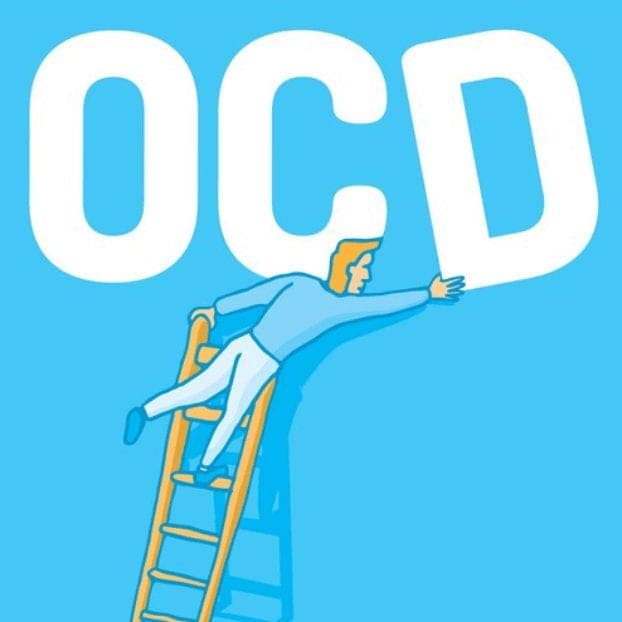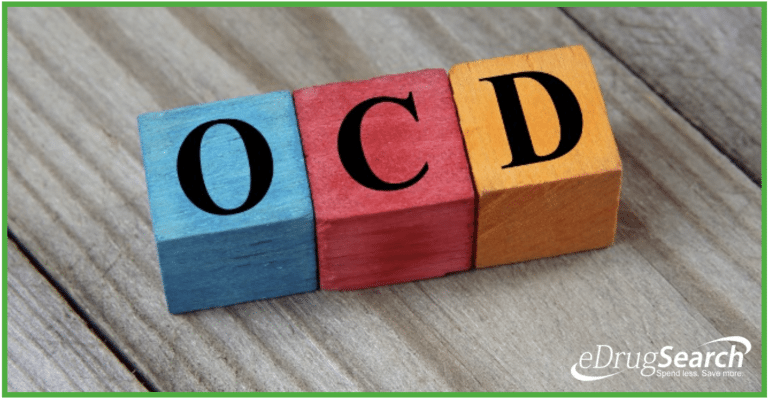The Best Guide to Ocd Medications That Will Help You Choose Wisely
OCD Medication Consumer Guide
Reviewed by:
Dr. Diana Rangaves, PharmDLast Reviewed On:
Feb 25, 22
OCD is a chronic mental illness that can throw an individual into a confusing, difficult mental landscape.
A variety of factors play into obsessive-compulsive disorder. There are different kinds of illness, each requiring a different treatment style. Behavioral therapy is the primary method of treating the illness. Because a chemical imbalance often causes it in the brain, medication is also needed to stabilize sufferers.
If you or someone you love suffers from OCD, it’s important to understand how they are feeling. It can feel lonely and scary to experience OCD. It is always helpful when family and friends understand OCD treatment and medication.
UNDERSTANDING OBSESSIVE COMPULSIVE DISORDER
Before understanding OCD meds, it’s important to understand the illness that they are treating. Obsessive-compulsive disorder is a complicated illness that can manifest in a number of forms. These forms are often terrifying and difficult to talk about, so the more social support for patients, the better.
COMMON PERCEPTION
There’s a fad surrounding obsessive-compulsive disorder right now. Similarly, to the way that people say they “want to blow their brains out” when something mildly irritating happens, people say that their “OCD is kicking in” when they want to clean their room or don’t like the way their pencils are arranged.
This does a disservice to victims of OCD. Wanting to have your room tidy is a rational thing. Locking and unlocking your door ritualistically is irrational and debilitating. There is a lot about OCD that has yet to come forward to the popular consciousness.
Another common perception of OCD comes from movies like As Good as it Gets and The Aviator. These films depict individuals who have one kind of OCD: ritualistic.
Ritualistic obsessive-compulsive disorder is a common form of the illness, but it ignores the equally common, “bad thought” OCD. We’ll go into both in the following sections.
RITUALISTIC OCD
This form of the illness pushes individuals to repeat certain actions in order to feel normal or prevent a terrible event from happening. It can be seen as a sort of superstitious habit that can debilitate a person’s life. It is an irrational thing, and victims often know this.
Let’s go with the classic example of cracks in the sidewalk. If you had OCD, you may be having a totally normal day walking to the grocery store. You’re walking down the road and are forced to step onto the sidewalk. Suddenly your good mood takes a dark turn.
Looking at the first crack in the sidewalk, you take the challenge of crossing over it like everyone else does. Unfortunately, though, after you cross you worry that your mother might die if you don’t go back and cross over in just the right way. You repeat the action until you make it across in a way that feels right.
The thing is, you have to do this on every crack, every day you go to the grocery store. You could imagine how this could be difficult. As OCD develops, things start to escalate.
You start locking and unlocking your door a specific amount of times before you allow yourself to finally sit down on the couch. You start washing your hands in a specific way, lest you might die in your sleep. These are rational people doing irrational things.
This prevents sufferers of OCD from experiencing a normal life, having healthy relationships, and living free of excessive anxiety. It is not a matter of having things the way you like it, it’s a matter of living under the rule of an extremely difficult disease.
BAD THOUGHT OCD

In a nutshell, bad thought OCD puts thoughts in the victim’s mind. These thoughts are ones that no normal person would find acceptable. The thoughts are a mental response to one’s deepest fears.
Things like envisioning your mother naked, thinking you are:
- A homosexual.
- Thinking that you are a pedophile.
- Thinking that you secretly want to kill your family.
These thoughts come into a mind and linger there because they are so vivid and terrifying.
Of course, the victim would never do any of these things. These images are the images of the things they find most horrible. The thoughts come consistently, often occupying a victim’s mind for months at a time.
Experiencing this kind of OCD can strip a person of their identity and confidence. They are often convinced that they are so morally deluded and terrible that they begin to hate themselves.
Part of the difficulty is that there is little awareness of this disease. People think that OCD is a frail, manageable issue that everyone has sometimes. They don’t imagine that they will imagine the most terrible things that people have the capacity to imagine.
They think that these thoughts are inherent to their personality. They think that there is something about them that has always wanted the things that they are experiencing. And worse, they have no idea that they have a mental illness.
For the reasons listed above, OCD is an extremely confusing illness for outsiders to understand. That’s why it is so important for friends and family to understand what is going on in the victim’s mind. OCD medication and treatment are crucial as well, and we’ll go over those next.
OCD MEDICATIONS
There is a debate on the fundamental source of OCD. That being said, there is research to show that an imbalance of serotonin causes it. For this reason, many depression medications aid in the treatment of obsessive-compulsive disorder because depression is caused by a serotonin imbalance as well.
ZOLOFT
Zoloft is used to treat a variety of mental illnesses. it’s in the SSRI category and is used to calm anxiety and depression by stabilizing levels of serotonin.
It is known to improve general feelings of engagement, restful sleep, hunger, and manages symptoms that make one feel unable to engage with life. It also has properties that have shown to limit the number of bad thoughts that OCD victims experience.
Limiting bad thoughts often allows patients to have just enough space for their disease to look at it objectively and start moving forward.
PROZAC
Prozac is one of the most commonly known depression medications depression medications. Many people have given Prozac a bad name, likely because it is the most popular medication.
There is a disdain for mental health medications because people believe that they are given out like candy at medical facilities. There are all kinds of dystopic conspiracy theories, likening our Prozac to “Soma” from Aldous Huxley’s, Brave New World.
Whether or not these theories have any merit, mental health medications do have important effects for those who use them. Prozac is also an SSRI and can be used to treat depression, OCD, and panic/anxiety disorders.
FLUVOXAMINE
Fluvoxamine is the medication on this list that is most geared toward obsessive disorders. This doesn’t mean that it will be more effective, but it is marketed more toward those experiencing these disorders.
Still, in the SSRI category, Fluvoxamine works to maintain healthy levels of serotonin in the brain. The primary goal of this medication is to help those suffering from reoccurring thoughts.
Here's the top 25 most popular #medication used to treat #OCD, ranked by #patient popularity and includes the lowest #DrugPrices for cost comparison. #ObsessiveCompulsiveDisorderCLICK TO TWEET
TOP 25 MOST POPULAR DRUGS USED TO TREAT OCD
The OCD drugs listed below are arranged by patient popularity, #1 being the most popular.
For your convenience we have linked to all prescription drug prices (shown below) within our database so you can quickly compare and find the lowest prices on most popular OCD medications.
- Zoloft
- Prozac
- sertraline
- fluvoxamine
- fluoxetine
- Luvox
- Paxil
- Anafranil
- clomipramine
- Luvox CR
- clonazepam
- citalopram
- escitalopram
- paroxetine
- Zofran
- quetiapine
- tramadol
- venlafaxine
- ondansetron
- mirtazapine
- Zofran
- olanzapine
- Prozac Weekly
- Rapiflux
- ziprasidone
THERAPIES
It's important to cover relevant therapies in any discussion of OCD briefly. The most common form of OCD therapy is cognitive-behavioral therapy. This requires patients to work with an individual therapist who analyzes and suggests actions that would benefit a patient's health.
There is also an element of exposure therapy in obsessive-compulsive disorder treatment. For example, if a person has a ritual of tapping their hand three times before talking to someone they don’t know, a therapist would work to find ways out of that behavior. Slowly moving toward the absence of the unwanted behavior, the patient works with the therapist through extreme fear and anxiety.
You can think of medication as a dental assistant holding your mouth open while the dentist (therapy) gets in there and cleans your teeth. Therapy is the most important aspect of treatment.
The goal is to help patients deal with their thoughts and not even notice that they have an illness. OCD may or may not linger on for one's entire life, but there are ways to manage it not to affect daily living.
LEARN MORE
There is a lot more to learn about OCD. If you or someone you know is experiencing this illness, you need to all that you can do to understand it. This is a manageable disease, and there is certainly hope for those dealing with symptoms.
Join Our Free Newsletter
Get a weekly dose of money-saving tips on your medications, drug side effects alerts, drug interaction warnings, free prescription coupons, late-breaking safety information and much, much more!